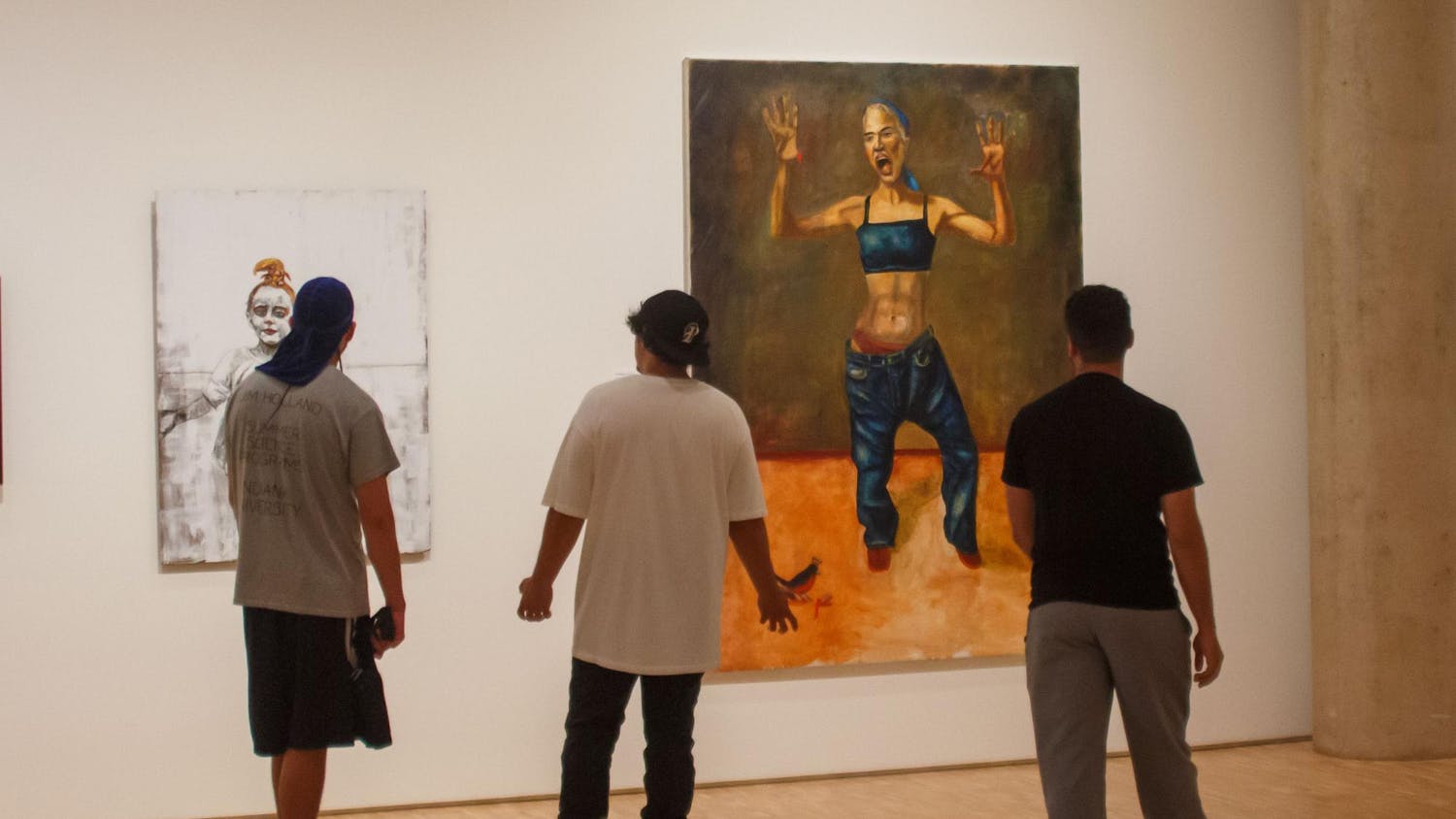Saxophone and trumpet players rehearsing for an IU Soul Revue performance played rough snippets of the ever-recognizable melody of “Give Up the Funk” by Parliament. Minutes later, Parliament’s Bootsy Collins, famous bass player and funk music trailblazer, walked in the room.
Collins was at IU on Tuesday to participate in Funkology: A Conversation with Bootsy Collins and Dr. Scot Brown at the IU Cinema. He stopped by the Soul Revue rehearsal an hour before.
Soul Revue is one of three performance ensembles in the African American Arts Institute and specializes in black popular music. The performers didn’t know they would be singing in front of Collins until a week and a half ago, senior Dexter Clardy said.
Fast forward to Tuesday, and Collins was dancing along to the group’s renditions of songs he was originally a part of, like James Brown’s “Get Up Sex Machine” and “Papa’s Got a Brand New Bag.” Collins got his start as part of Brown’s band the J.B.’s before he moved on to the funk collective Parliament-Funkadelic.
“You’re all just incredible, man,” he said to the performers. “I’m speechless.”
The audience at Funkology seemed to feel the same way. The crowd, filling all 260 seats in the auditorium, danced in their seats to Soul Revue’s performance of Brown and Parliament-Funkadelic songs that paid homage to Collins.

It’s one thing to perform for someone big, Clardy said, but it’s another thing to perform their own music to them.
“This is the liveliest I’ve seen this room ever in the last seven months,” cinema director Jon Vickers said after the performance.
Once Collins took the stage, he was a spectacle in himself. Living up to his self-proclaimed title as rhinestone rock-star doll in the song "Bootzilla", he wore a top hat and jacket covered in silver rhinestones, as well as sunglasses with rhinestones that made a star shape on the lenses.
UCLA associate professor Scot Brown led the conversation, asking Collins about funk past and present.
Collins sometimes danced and sang during his answers and gave a comical, impressively accurate impression of James Brown when telling stories about him.
He learned to play bass in high school on a $29 guitar, whose strings he had swapped for bass strings. He grew up in Cincinnati, where James Brown recorded for King Records.
Scot Brown called Ohio, specifically Dayton, Ohio, a funk epicenter because of the amount of funk bands that came out of the region in the 1970s. He is currently working on a book titled “Tales from the Land of Funk: Dayton, Ohio, and the African American Funk Bands in the 1970s.”
After Collins' first performance with James Brown in 1970, Brown bought Collins his first new bass and amps.
“That was my life," Collins said. "That was the start of it.”
James Brown was a father figure to Collins, he said. He took care of him but also kept him in line, like the time he banned him from playing Jimi Hendrix covers on the tour bus.
Hendrix was another powerful influence on Collins.
“The more people didn’t understand it, the more I got off on it,” Collins said of Hendrix’s music.
The combination of listening to Hendrix and the skills learned from Brown caused a shift in Collins’ musical style. He moved from Brown to join Parliament-Funkadelic, where he taught its founder, funk innovator George Clinton, skills he learned from Brown.
Collins pursued his own projects, too, releasing solo albums and projects with other artists. In 2017 he released the album “World Wide Funk,” which Scot Brown played for the audience.
Scot Brown said funk seemed to be going through a renaissance right now, with artists such as Bruno Mars and Childish Gambino. He asked Collins if this was a challenge or an opportunity for the genre.
“I think it’s an opportunity for us all to embrace each other,” Collins said. “The funk is the thing to bring everybody together.”
Everybody came together for a reception at Neal-Marshall Black Culture Center after the event, which included music DJed by Collins’ son Ouiwey Collins, catered soul food, and Collins signing copies of his new album.
Clardy said he was inspired by Collins’ positive energy that radiated through the room.
He took advantage of Collins’ receptiveness and asked him about how to break through in the industry. Clardy has his own funk band, Huckleberry Funk, and is learning to navigate the music sphere.
Scot Brown also answered, saying students at IU were in the right place by getting an education. Collins added students should take time to experiment and get lost in music.
Soul Revue singer and senior Jasmine Dennie took advice from Collins about being yourself.
“In the end, that’s what’s going to rise to the top,” she said.
Her favorite genre is funk, and she said she looks up to Collins as a legend.
“He is the supreme funkologist,” Dennie said. “Funk is not dead.”



